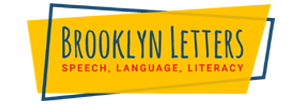In my practice, I get lots of questions from parents of young children about helping kids manage their emotions. Young kids, as we all know ( .some of us by direct experience, wink wink) are prone to tantrums and/or meltdowns. One reason for this is that their young minds are not yet able to a) understand their emotions and b) express their emotions. As with developing abilities, preschoolers need help learning the skill known as emotional vocabulary. In my last blog, I talked about labeling emotions by telling your child what you think she/he may be feeling at a particular moment. Now, I would like to talk about how we can help kids start to use their OWN feeling vocabulary. For example, when your child hears that you are making his or her favorite lunch-grilled cheese and apple- his or her little face peels into a smile and he or she starts dancing. While it is obvious to us that he or she is happy or excited, this is not so obvious to her or him. This is a good opportunity for developing the feeling vocabulary in your child by making a statement such as, I can see that you re really happy about lunch today! To take this one step further, help your child make connections between situations (or triggers) and feelings by following up with questions such as Is that so ” “Do you think you are happy about lunch This accomplishes two goals: a) it helps him or her confirm or disconfirm the feeling; b) it also provides room for a verbal exchange about feelings and triggers. Feelings charts (see links below) can help children use visual cues to build their vocabulary and recognize these emotions in others (there are many free and printable varieties online). You can start with simple ones with 3 or 4 feelings and gradually build up to more complex versions with up to 20 feelings.
Learning happens best when we are calm and attentive. Instead of waiting for a moment when you observe an intense emotion in your child, actively inject the feeling vocabulary into your everyday conversation. At this age, almost every activity can become an opportunity for emotions talk . So when you are having breakfast and you are talking about the planned outings of the day ahead, you can ask questions of your child such as, Do you think the movie we're going to see will be scary or silly Your friend is coming over tomorrow for a play date, are you excited
Feelings Charts
http://www.freeprintablebehaviorcharts.com/feeling_charts.htm
http://www.child-behavior-guide.com/feelings-chart.html
Annette is a licensed clinical psychologist. She has a private practice in Park Slope and works with children with developmental delays and treats children/adolescents suffering from traumatic stress, depression, anxiety and related disorders. She incorporates cognitive-behavioral interventions with diverse clinical populations. She offers individual psychotherapy that focuses on building a child's existing strengths and developing new ways of coping with difficult situations. She can be reached at: [email protected] or by phone at 917-519-3082.
Craig Selinger
Latest posts by Craig Selinger (see all)
- Private-Pay NYC SETSS: Special Education Teacher Support Services - June 29, 2022
- 7 Do’s and Dont’s of Teaching Self-Control to Young Children - June 11, 2022
- 8 Tips to Help Parents Practice Positive Parenting - June 11, 2022
